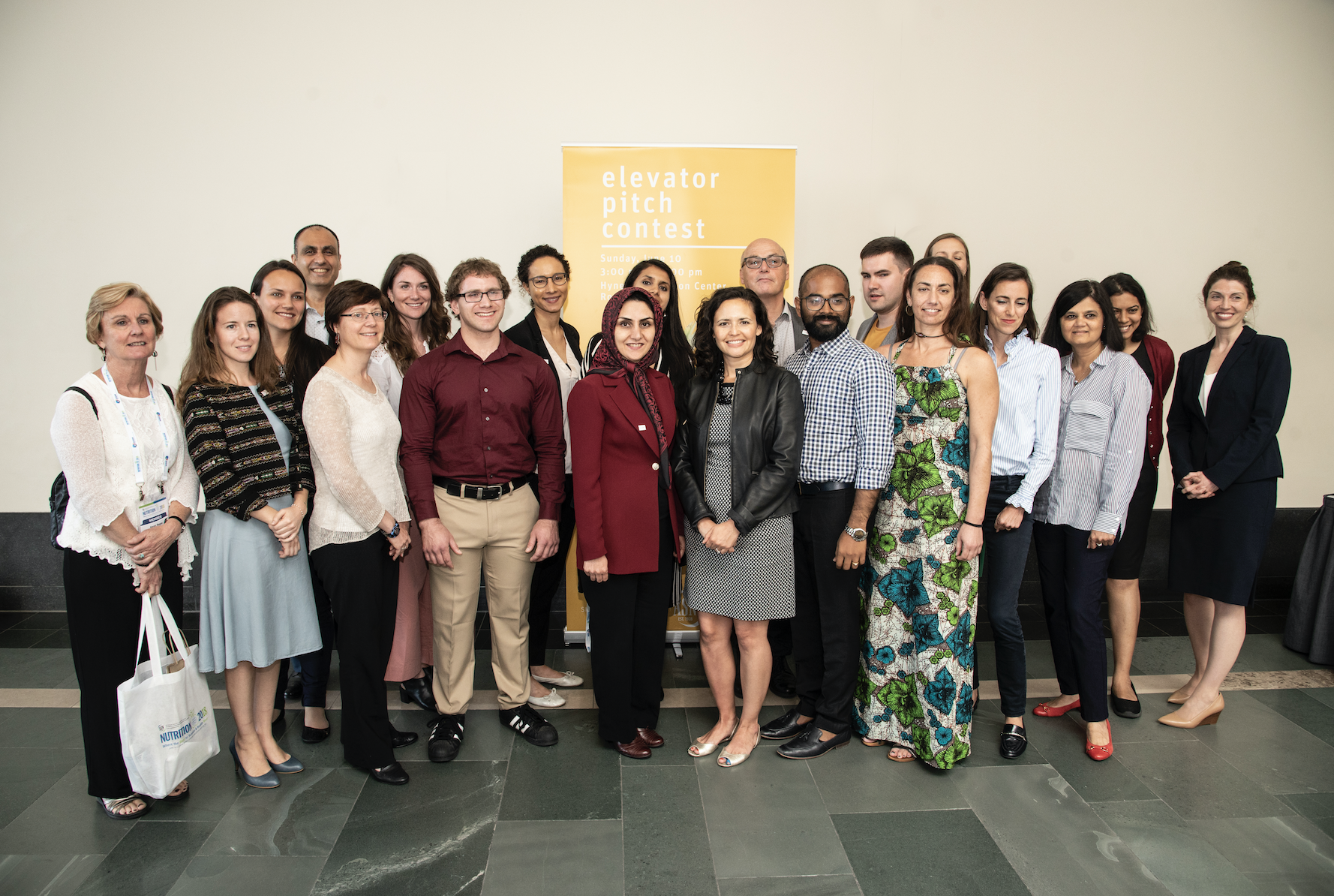By Richard Campbell
The Nutrition 2018 Conference ran this past week June 9th to 12th at the Hynes Convention Center gathering nutrition professionals from New England and around the nation. The big take-aways were the effect of good nutrition on child development, and the continuing evaluation of the role the microbiome plays in health of individuals. Not surprisingly what your mother probably told you: “Eat your broccoli, it’s good for you.” Or “No, we don’t have any cookies, have a piece of fruit instead,” turn out to be advice that mounds of research prove to be the best in the world. Because this conference was filled with technical information, I present some highlights in the form of summer nutrition guidelines.
This conference included more than a few presentations on the diabetes crisis that is hitting our youth, aided and abetted by sugary soft drinks, fatty junk foods, and sedentary lifestyles. One wonders why if everyone knows that high fructose corn syrup in soda pop has driven a scandalous wave of health problems from dental caries to obesity- particularly among lower income families- why can’t manufacturers get off the sugar addiction? The answer, of course, is money. Basically, big soda manufacturers are selling harmful product for big profits. For parents to wean their kids of the soda habit once it is started, replacing one kind of sweetness with another is not necessarily the answer, so much as training taste buds. Though replacing soda with fruit juice is a better option, nutritionists advise to cut it significantly with water- as juice by itself wreaks havoc on blood sugar levels. Once again, Mom was right. “Drink some water!” But seriously…
“American toddlers Consume too much added sugar” was the basic conclusion presented at the convention by a nutritional study headed by Kirsten Herrick, a nutritional epidemiologist at the Centers for Disease Control and Prevention (CDC) To quote: “Our results show that added sugar consumption begins early in life and exceeds current recommendations.” Perhaps that wouldn’t surprise people too much, but the study found that “99 percent of US toddlers, age 19-23 months consumed over 7 teaspoons of sugar daily- more sugar than is in a Snicker’s bar.” Added sugars are tricky because so many foods have hidden sugar in them. The most important thing for mothers with young children is to do is to totally avoid the sodas, sugary cereals, and processed foods.
On a more complex level there seems to be a disconnect between what is on the grocery shelves and what nutritionists recommend. Perhaps as much as half of the processed foods- “dead food” offered in modern grocery stores is not only bad for our bodies, but also not economical. The measure of cheap junk food’s popularity among lower income families with children is understandable, as fast food restaurants spend millions advertising directly to children, and it appears to be inexpensive. But junk foods deceptively low cost is just the tail of the dog, for when diabetes strikes all those savings are lost in poor health and doctor bills. The real question is what foods nutritionists consider to be healthy replacements. “Don’t kids learn this stuff in school health class?” someone said to me. If not, we can’t blame food companies for the lack of nutritional courses in schools. What are the components of a healthy diet?
Naturally an increase in fruits and vegetables were continually mentioned and come high on this list; but a surprising number of foods and beverages we might not consider to be beneficial (coffee and tea and dark chocolate for example) are good for combating diseases. Water is the supreme drink, but as we all know, kids like variety. Studies show they easily become acclimated to less sugary drinks if adults serve them. For adults, the flavonoids in coffee and tea were given the full treatment at this conference, revealing the positive health benefits of both, on cognition and mood. The mixture of healthy drinks with consuming fresh fruits and vegetables is proven to increase health is beyond a shadow of doubt. But studies have also shown that people who eat a wide variety of vegetables show further significant health benefits above others, and for those who don’t have problems with alcohol, a glass of red wine with a meal a few times a week was mentioned.
There were food exhibits of all kinds. I was surprised about Mazola’s advertised claim of their corn oil as being healthier than olive oil- which received significant advertising placement, along with POM, the pomegranate juice and various yogurts at this convention. One booth by Allulite had samples of their “Rare” chocolate, which was so delicious, despite containing no sugar. Their secret ingredient Alluose, seems to be the magic bullet in so far as sweet chocolate is concerned, and the claim is that your body processes it differently from common fructose, and does not raise blood sugar levels, has ten percent of the calories of sugar. Although a very new product, it certainly tasted promising! I really liked the fact that a number of exhibits were concerned with how things taste, and how to make things healthy satisfying. There was even a display of organic liquid diets that would replace traditional tube fed foods from Robin Gentry McGee’s Functional Formulas. I over heard arguments about the human biome and yogurt versus probiotic gummies- but couldn’t reach a conclusion.
Anything claiming to be a “superfood” should be dismissed as hype, for if diet was simply eating the “one thing” to make you healthy, there would be no need for nutritionists. There are an increasing number of dietary supplements designed to enhance your body and mind, among them TRU Niagen made claims for healthier aging. Great claims were made for natural add-ons to one’s diet like blueberries, cranberries, raspberries, walnuts, and concord grape juice for improving cognitive function. Some scientists said increased fiber is fundamental to helping the healthy gut’s role and weight loss. Basically, they said: eating sauerkraut is definitely more beneficial than chomping down on a donut and will allow you to drop a few pounds- but don’t expect miracles. Conversely, some conventional food products like nuts, and pecans, eaten daily, were claimed to reduce the risk of cardiovascular disease and diabetes. While it is fine to see all these individual food claims, the real problem for most Americans is having a system, and here the Mediterranean diet finds the largest group of nutritionist adherents.
The popularity of the Mediterranean diet finds significant research support for lowering “bad” cholesterol, reducing risk of heart disease, Alzheimer’s, and Parkinson’s disease. Perhaps more than the idea of eating fermented foods- a particularly popular fad among vegetarians- the Mediterranean diet has been subjected to extensive research. The correlation between increasing fish in the diet and lowering the risk of heart disease was no surprise. But I was surprised at its link to cognitive health as a brain food- and in particular, the claims for omega three diets effect on mood and depression. A featured speaker, Dr. Joseph Hibbeln MD made a presentation stating that people who maintain a Mediterranean diet have a 30% less incidence of depression. It becomes apparent after looking at the Mediterranean diet that when practiced correctly it also seems to include more portion control, as well as changing the kinds of foods consumed.
The various studies of the human microbiome and the influence on gut health have reached a fever pitch in the media, with all kinds of claims about individual probiotic products. The benefits of probiotics are not conclusively demonstrated, but certainly a lot of foods that contain them are probably healthy none the less. Supplements are largely viewed as making hype filled claims, and you will note that a number of food companies have been touting their positive effects. The limited success that probiotics have usually relates to people sick with digestive problems like diarrhea, but over and over I heard at this conference that there is really little of their influence upon the healthy person’s biome.
This conference brought out a few surprises about nutritionist new strategies- from Tufts University nutritionists working out strategies for big fast food chains to keep moving the needle towards more healthy foods, to revelations about the effect of better diet on the national economy. The studies on the first 1,000 days of human life and the effects of nutrition and the permanent damage that can be done to children by not having sufficient iron or other nutrients revealed the criticality of starting out life with good nutrition. Along with all the exhibits and lectures, graduate students from around the world were selected to give elevator speeches in a forum sponsored by “Sight and Life” on products that they wished to eventually take to market. The focus seemed to be upon digital aps that would solve various nutritional problems. There was so much more that happened at Nutrition 2018 Convention, and these people take their careers very seriously. For my part, here’s hoping this review sparks interest and finds you eating healthy for the summer! The American Society for Nutrition put on the Nutrition 2018 conference, for more information see: WWW.NUTRITION.ORG/N18.






